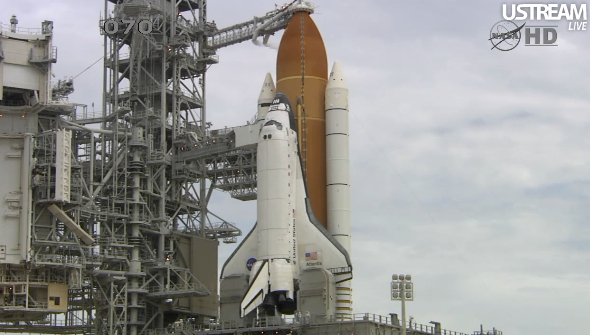
At the very end of his recent autobiography, Microsoft co-founder Paul Allen briefly teases ahead to a future project — saying that he’s “just now considering a new initiative wit that magical contraption I never wearied of sketching as a boy: the rocket ship.”

He adds, “Someone, after all, is going to have to get behind SpaceShipThree.”
For anyone just tuning in to this private space travel thing, SpaceShipOne was the X Prize winning suborbital rocket funded by Allen in 2004. SpaceShipTwo, based on technology from its predecessor, is the Virgin Galactic and Scaled Composites spacecraft that’s aiming to launch the era of commercial space tourism.
Virgin’s Richard Branson, who took the reins from Allen after SpaceShipOne, spoke about the project at Microsoft’s Worldwide Partner conference this morning.
“Governments are not going to be running the future of space travel. Private enterprise is,” he said, alluding to the end of the Space Shuttle program, marked by the final launch of Atlantis last week.
Branson said he expects to be going into space a year from now with his children. “We’re very, very close, and I think we can bring the price down over the next decade or two to levels where most people in this room ought to be able to become astronauts.”
Virgin Galactic has been charging $200,000 to reserve a suborbital ride.

Branson is far from alone in looking spaceward. Amazon CEO Jeff Bezos has been working for years on his own Blue Origin space project, which has operations in Texas but is headquartered south of Seattle, in Kent. Another example: the news we broke last week of a Seattle-area startup, Arkyd, led by X Prize creator Peter Diamandis, that’s pursuing “disruptive technologies for the commercial robotic exploration of space.”
Speaking this morning, Branson also talked about point-to-point travel through space: “The most exciting thing, I suspect, will be intercontinental travel. I came from Australia this morning. It took me 18 hours. Hopefully we’ll be able to do that in about three hours within about 20 years or so.”
That’s thought to be a big part of the vision for SpaceShipThree.
So where does Allen stand on that project now? As it turns out, he is not prepared to go beyond the hint he makes at the end of the book.
However, Allen spokesman David Postman tells us via email, “His experience with SS1 has made him a believer that the private sector can innovate in space travel and there’s no doubt that the end of the shuttle program and NASA cutbacks in general are putting a bigger burden on industry to step up.”



